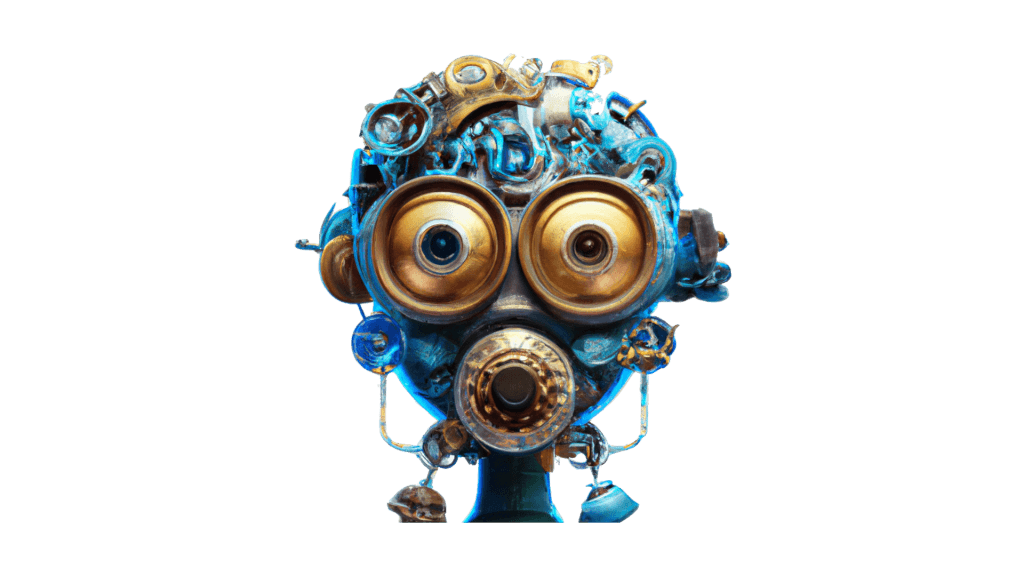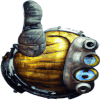Every night, before going to bed, Rina checked the refrigerators.
There were two in the kitchen, on separate circuits, one with a fancy ice dispenser on the door. There was one in the living room holding up the TV, and one in the bedroom doubling as a nightstand. A small cubical unit meant for college dorm rooms was in the hallway, and a cooler that Rina refilled with fresh ice every night was in the bathroom, under the sink.
Rina opened the door of each refrigerator and looked in. Most of the refrigerators were empty most of the time. This didn’t bother Rina. She wasn’t interested in filling them. The checks were a matter of life and death. It was about the preservation of her soul.
What she was interested in were the freezer compartments. She liked to hold each door open for a few seconds, let the cold mist of condensation dissipate, and feel the chill on her fingers, breasts, face. She closed the door when the motor kicked in.
By the time she was done with all of the refrigerators, the apartment was filled with the bass chorus of all the motors, a low, confident hum that to Rina was the sound of safety.
In her bedroom, Rina got into bed and pulled the covers over her. She had hung some pictures of glaciers and icebergs on the walls, and she looked at them as pictures of old friends. There was also a framed picture on the refrigerator by her bed, this one of Amy, her roommate in college. They had lost touch over the years, but Rina kept her picture there anyway.
Rina opened the refrigerator next to her bed. She stared into the glass dish that held her ice cube. Every time she looked, it seemed to get smaller.
Rina closed the refrigerator and picked up the book lying on top of it.
* * *
Edna St. Vincent Millay: A Portrait in Letters by Friends, Foes, and Lovers —
New York, January 23, 1921
My Dearest Viv,–
Finally got up the courage to go see Vincent at her hotel today. She told me she wasn’t in love with me anymore. I cried. She became angry and told me that if I couldn’t keep myself under control then I might as well leave. I asked her to make me some tea.
It’s that boy she’s been seen with. I knew that. Still, it was terrible to hear it from her own lips. The little savage.
She smoked two cigarettes and offered me the box. I couldn’t stand the bitterness so I stopped after one. Afterwards she gave me her lipstick so I could fix my lips, as if nothing had happened, as if we were still in our room at Vassar.
“Write a poem for me,” I said. She owed me at least that.
She looked as if she wanted to argue, but stopped herself. She took out her candle, put it in that candleholder I made for her and lit it at both ends. When she lit her soul like that she was at her most beautiful. Her face glowed. Her pale skin was lit from within like a Chinese paper lantern about to burst into flame. She paced around the room as if she would tear down the walls. I drew up my feet on the bed, and wrapped her scarlet shawl around me, staying out of her way.
Then she sat down at her desk and wrote out her poem. As soon as it was done she blew out her candle, stingy with what remained of it. The smell of hot wax made me all teary-eyed again. She made out a clean copy for herself and gave the original to me.
“I did love you, Elaine,” she said. “Now be a good girl and leave me alone.”
This is how her poem starts:
What lips my lips have kissed, and where, and why,
I have forgotten, and what arms have lain
Under my head till morning, but the rain
Is full of ghosts tonight, that tap and sigh —
Viv, for a moment I wanted to take her candle and break it in half, to throw the pieces into the fireplace and melt her soul into nothing. I wanted to see her writhing at my feet, begging me to let her live.
But all I did was to throw that poem in her face, and I left.
I’ve been wandering around the streets of New York all day. I can’t keep her savage beauty out of my mind. I wish my soul was heavier, more solid, something that could weigh itself down. I wish my soul wasn’t this feather, this ugly wisp of goose down in my pocket, lifted up and buffeted about by the wind around her flame. I feel like a moth.
Your Elaine
* * *
Rina put the book down.
To be able to set your soul afire, she thought, to be able to draw men and women to you at your will, to be brilliant, fearless of consequences, what would she not give to live a life like that?
Millay chose to light her candle at both ends, and lived an incandescent life. When her candle ran out, she died sick, addicted, and much too young. But each day of her life she could decide, “Am I going to be brilliant today?”
Rina imagined her ice cube in the dark, cold cocoon of the freezer. Stay calm, she thought. Block it out. This is your life. This bit of almost-death.
Rina turned out the light.
* * *
When Rina’s soul finally materialized, the nurse in charge of watching the afterbirth almost missed it. All of a sudden, there, in the stainless steel pan, was an ice cube, the sort you would find clinking around in glasses at cocktail parties. A pool of water was already forming around it. The edges of the ice cube were becoming rounded, indistinct.
An emergency refrigeration unit was rushed in, and the ice cube was packed away.
“I’m sorry,” the doctor said to Rina’s mother, who looked into the serene face of her baby daughter. No matter how careful they were, how long could they keep the ice cube from melting? It wasn’t as if they could just keep it in a freezer somewhere and forget about it. The soul had to be pretty close to the body; otherwise the body would die.
Nobody in the room said anything. The air around the baby was awkward, still, silent. Words froze in their throats.
* * *
Rina worked in a large building downtown, next to the piers and docked yachts she had never been on. On each floor, there were offices with windows around the sides, the ones overlooking the harbor being bigger and better furnished than the others.
In the middle of the floor were the cubicles, one of which was Rina’s. Next to her were two printers. The hum of the printers was a bit like the hum of refrigerators. Lots of people passed by her cubicle on the way to pick up their printouts. Sometimes they stopped, thinking they would say hello to the quiet girl sitting there, with her pale skin and ice-blonde hair, and always a sweater around her shoulders. Nobody knew what color her eyes were because she did not look up from her desk.
But there was a chill in the air around her, a fragile silence that did not want to be broken. Even though they saw her every day, most people did not know Rina’s name. After a while, it became too embarrassing to ask. While the chattering life of the office ebbed and flowed around her, people left her alone.
Under Rina’s desk was a small freezer that the firm had installed just for her. Each morning Rina would rush into her cubicle, unzip her insulated lunch bag, and from her thermos stuffed with ice cubes, she would carefully pull out the sandwich bag holding her one special ice cube and put it into the freezer. She would sigh, and sit in her chair, and wait for her heart to slow down.
The job of the people in the smaller offices away from the harbor was to look up, on their computers, the answers to questions asked by people in the offices facing the harbor. Rina’s job was to take those answers and use the right fonts to squeeze them into the right places on the right pieces of paper to be sent back to the people in the harbor offices. Sometimes the people in the smaller offices were too busy, and they would dictate their answers onto cassette tapes. Rina would then type up the answers.
Rina ate her lunch at her cubicle. Even though one could go some distance away from one’s soul for short periods of time without getting sick, Rina liked to be as close to the freezer as possible. When she had to be away sometimes to deliver an envelope to some office on another floor, she had visions of sudden power failures. Out of breath, she would then hurry through the halls to get back to the safety of her freezer.
Rina tried not to think that life was unfair to her. Had she been born before the invention of the Frigidaire she would not have survived. She didn’t want to be ungrateful. But sometimes it was difficult.
After work, instead of going dancing with the other girls or getting ready for a date, she spent her nights at home, reading biographies to lose herself in other lives.
* * *
Morning Walks with T. S. Eliot: A Memoir —
Between 1958 and 1963, Eliot was a member of the Commission for the Revised Psalter of the Book of Common Prayer. He was rather frail by this time, and avoided tapping into his tin of coffee altogether.
One exception was when the Commission came to revise Psalm 23. Four centuries earlier, Bishop Coversdale had been rather free with his translation from the Hebrew. The correct English rendition for the central metaphor in the Psalm, the Commission agreed, was “the valley of deep darkness.”
At the meeting, for the first time in months, Eliot brewed a cup of his coffee. The rich, dark aroma was unforgettable to me.
Eliot took a sip of his coffee, and then, in that same mesmerizing voice he used to read The Waste Land, he recited the traditional version that had infused itself into the blood of every Englishman: “Though I walk through the valley of the shadow of death, I shall fear no evil.”
The vote was unanimous to keep Coversdale’s version, embellished though it might have been.
I think it always surprised people how deep was Eliot’s devotion to tradition, to the Anglican Church, and also how thoroughly his soul had been imbibed by the English.
I believe that was the last time Eliot tasted his soul, and often since then I have wished that I could again smell that aroma: bitter, burnt, and restrained. It was not only the spirit of a true Englishman, but also that of the genius of poetry.
* * *
To measure out a life with coffee spoons, Rina thought, must have seemed dreadful sometimes. Perhaps that was why Eliot had no sense of humor.
But a soul in a coffee tin was also lovely in its own way. It enlivened the air around him, made everyone who heard his voice alert, awake, open and receptive to the mysteries of his difficult, dense verse. Eliot could not have written, and the world would have understood, Four Quartets without the scent of Eliot’s soul, the edge it gave to every word, the sharp tang of having drunk something deeply significant.
I would love to have the mermaids sing to me, Rina thought. Was that what Eliot dreamed of after drinking his coffee before sleep?
Instead of mermaids, she dreamt of glaciers that night. Miles and miles of ice that would take a hundred years to melt. Though there was no life in sight, Rina smiled in her sleep. It was her life.
* * *
On the first day the new man showed up at work, Rina could tell that he was not going to be in his office for long.
His shirt was a few years out of style, and he did not take care to polish his shoes that morning. He was not very tall, and his chin was not very sharp. His office was down the hall from Rina’s cubicle, and it was small, with only one window facing the building next to this one. The nametag outside the office said Jimmy Kesnow. By all signs he should have been just another one of the anonymous, ambitious, disappointed young men passing through the building every day.
But Jimmy was the most comfortable person Rina had ever seen. Wherever he was, he acted like he belonged. He was not loud and he did not talk fast, but conversations and crowds opened up places for him. He would say only a few words, but people would laugh and afterwards feel a little wittier themselves. He would smile at people, and they would feel happier, more handsome, more beautiful. He popped in and out of his office all morning, managing to look purposeful and relaxed enough to stop and chat at the same time. Offices remained open after he had left, and their occupants felt no desire to close the doors.
Rina saw that the girl in the cubicle next to hers primped herself when she heard Jimmy’s voice coming down the hall.
It seemed difficult to even remember what life in the office was like before Jimmy.
Rina knew that young men like that did not stay in small offices with only one window facing an alley for very long. They moved into offices facing the harbor, or maybe on the next floor. Rina imagined that his soul was probably a silver spoon, effortlessly dazzling and desirable.
* * *
The Trial of Joan of Arc —
“At night the soldiers and Joan slept together on the ground. When Joan took off her armor we could see her breasts, which were beautiful. And yet never once did she awake in me carnal desires.
“Joan would become angry when the soldiers swore in her presence or spoke of the pleasures of the flesh. She always chased away the women who followed soldiers with her sword unless a soldier promised to marry such a woman.
“Joan’s purity came from her soul, which she always carried on her body whether she was riding into battle or getting ready to sleep for the night. This was a beech branch. Not far from Douremy, her home village, there was an old beech tree called the Ladies’ Tree by a spring. Her soul came from that tree, for the branch gave off a smell that those who knew Joan in her childhood swore was the same smell given off by the spring by the Ladies’ Tree.
“Whoever came into Joan’s presence with a sinful thought would instantly have that flame extinguished by the influence of her soul. Thus she remained pure, as I do swear to tell the truth, even though she would sometimes be naked as the rest of the soldiers.”
* * *
“Hey,” Jimmy said. “What’s your name?”
“Joan,” Rina said. She blushed, and put her book down. “Rina, I meant.” Instead of looking at him she looked down at the half-eaten salad on her desk. She wondered if there was anything at the corners of her mouth. She thought about wiping her mouth with the napkin but decided that would draw too much attention.
“You know, I’ve been asking around the office all morning, and no one could tell me your name.”
Even though Rina already knew this was true, she felt a little sad, as if she had disappointed him. She shrugged.
“But now I know something no one else here knows,” Jimmy said, and sounded as if she had told him a wonderful secret.
Did they finally turn down the air conditioning? Rina thought. It didn’t feel as cold as it usually did. She thought about taking off her sweater.
“Hey Jimmy,” the girl in the cubicle next to Rina’s called out. “Come over here. Let me show you those pictures I was telling you about.”
“See you later,” Jimmy said, and smiled at her. She knew because she was looking up, looking into his face, which she realized could be handsome.
* * *
Legends of the Romans —
Cicero was born with a pebble. Therefore, no one expected him to amount to much.
Cicero practiced public speaking with the pebble in his mouth. Sometimes he almost choked on it. He learned to use simple words and direct sentences. He learned to push his voice past the pebble in his mouth, to articulate, to speak clearly even when his tongue betrayed him.
He became the greatest orator of his age.
* * *
“You read a lot,” Jimmy said.
Rina nodded. Then she smiled at him.
“I’ve never seen eyes with your shade of blue,” Jimmy said, looking directly into her eyes. “It’s like the sea, but through a layer of ice.” He said this casually, as if he was talking about a vacation he had taken, a movie he had seen. This was why Rina knew he was being sincere, and she felt as if she had given him another secret, one she didn’t even know she had.
Neither of them said anything. This would usually be awkward. But Jimmy simply leaned against the wall of the cubicle, admiring the stack of books on Rina’s desk. He settled into the silence, relaxed into it. And so Rina felt content to let the silence go on.
“Oh, Catullus,” Jimmy said. He picked up one of the books. “Which poem is your favorite?”
Rina pondered this. It seemed too bold to say that it was “Let us live, my Lesbia, and let us love.” It seemed too coy to say that it was “You ask me how many kisses.”
She agonized over the answer.
He waited, not hurrying her.
She couldn’t decide. She began to say something, anything, but nothing came out. A pebble was in her throat, an ice-cold pebble. She was angry with herself. She must have looked like such an idiot to him.
“Sorry,” Jimmy said. “Steve is waving at me to come to his office. I’ll catch up with you later.”
* * *
Amy was Rina’s roommate in college. She was the only person Rina ever pitied. Amy’s soul was a pack of cigarettes.
But Amy did not act like she wanted to be pitied. By the time Rina met her, Amy had less than half a pack left.
“What happened to the rest of them?” Rina was horrified. She could not imagine herself being so careless with her life.
Amy wanted Rina to go out with her at nights, to dance, to drink, and to meet boys. Rina kept on saying no.
“Do it for me,” Amy said. “You feel sorry for me, right? Well, I’m asking you to come with me, just once.”
Amy took Rina to a bar. Rina hugged her thermos to her the whole way. Amy pried it out of her hand, dropped Rina’s ice cube into a shot glass, and told the bartender to keep it chilled in the freezer.
Boys came up to try to pick them up. Rina ignored them. She was terrified. She wouldn’t take her eyes off the freezer.
“Try to act like you are having fun, will you?” Amy said.
The next time a boy came up to them, Amy took out one of her cigarettes.
“You see this?” she said to the boy, her eyes flashing in the glow from the neon lights behind the bar. “I’m going to start smoking it right now. If you can get my friend here to laugh before I finish it, I will go home with you tonight.”
“How about both of you come home with me tonight?”
“Sure,” Amy said. “Why not? You better get cracking though.” She flicked her lighter and took a long drag on her cigarette. She threw her head back and blew the smoke high into the air.
“This is what I live for,” Amy whispered to Rina, her pupils unfocused, wild. “All life is an experiment.” Smoke drifted from her nostrils and made Rina cough.
Rina stared at Amy. Then she turned around to face the boy. She felt a little lightheaded. The crooked nose on the boy’s face seemed funny and sad at the same time.
Amy’s soul was infectious.
“I’m jealous,” Amy said to Rina the next morning. “You have a very sexy laugh.” Rina smiled when she heard that.
Rina found the shot glass with her ice cube in the boy’s freezer. She took the shot glass home with her.
Still, that was the last time Rina agreed to go with Amy.
They lost touch after college. When Rina thought about Amy, she wished that her pack of cigarettes would magically refill itself.
* * *
Rina had been paying attention to the flow of paper out of the printers next to her. She knew that Jimmy was going to move to an office upstairs soon. She didn’t have a lot of time.
She went shopping over the weekend. She made her choices carefully. Her color was ice blue. She had her nails done, to go with her eyes.
Rina decided on Wednesday. People tended to have more to talk about at the beginning of the week and the end of the week, either about what they had done over the weekend or what they were about to do the next weekend. There was not so much to talk about on Wednesdays.
Rina brought her shot glass with her, for good luck, and because the glass was easy to chill.
She made her move after lunch. There was still a lot of work in the afternoon, and the gossip tended to die down then.
She opened the freezer door, took out the chilled shot glass and the sandwich bag with her ice cube. She took the ice cube out of the bag and put it into the shot glass. Condensation immediately formed on the outside of the glass.
She took off her sweater, picked up the glass in her hand and began to walk around the office.
She walked wherever there were groups of people — in the hallways, by the printers, next to the coffee machines. As she approached, people felt a sudden chill in the air, and there would be a lull in the conversation. Witticisms sounded flat and stupid. Arguments died. Suddenly everyone would remember how much work was left to do and make up some excuse to get away. Office doors closed as she passed them.
She walked around until the halls were quiet, and the only office with its door open was Jimmy’s.
She looked down into the glass. There was a small pool of water at the bottom of the glass; soon the ice cube would be floating.
She still had time, if she hurried.
Kiss me, before I disappear.
She put the shot glass down outside the door to Jimmy’s office. I am not Joan of Arc.
She walked into Jimmy’s office and closed the door behind her.
* * *
“Hello,” she said. Now that she was alone with him, she didn’t know what else to do.
“Hey,” he said. “It’s so quiet around here today. What’s going on?”
“Si tecum attuleris bonam atque magnam cenam, non sine candida puella,” she said. “If you bring with you a good meal and lots of it, and not without a pretty girl. That’s the one. That’s my favorite poem.”
She felt shy, but warm. There was no weight on her tongue, no pebble in her throat. Her soul was outside that door, but she was not anxious. She was not counting down the seconds. The shot glass with her life in it was in another time, another place.
“Et uino et sale et omnibus cachinnis,” he finished for her. “And wine and salt and all the laughter.”
She saw that there was a saltshaker on his desk. Salt made the blandest food palatable. Salt was like wit and laughter in conversation. Salt made the plain extraordinary. Salt made the simple beautiful. Salt was his soul.
And salt made it harder to freeze.
She laughed.
She unbuttoned her blouse. He began to get up, to stop her. She shook her head and smiled at him.
I have no candle to burn at both ends. I won’t measure my life with coffee spoons. I have no spring water to quiet desire because I have left behind my frozen bit of almost-death. What I have is my life.
“All life is an experiment,” she said.
She shook off her blouse and stepped out of her skirt. He could now see what she had bought over the weekend.
Ice blue was her color.
* * *
She remembered laughing, and she remembered him laughing back. She worked hard to memorize every touch, every quickened breath. What she didn’t want to remember was the time.
The noise of the people outside the door gradually rose and then gradually settled down. They lingered in his office.
What lips my lips have kissed, she thought, and realized that it was again completely quiet outside the office. Sunlight in the room was taking on a red tinge.
She got up, stepping away from his grasp, and put on her blouse, stepped into her skirt. She opened the door to his office and picked up the shot glass.
She looked, and looked frantically, for a sliver of ice. Even the tiniest crystal would suffice. She would keep it frozen and eke out the rest of her life on the memory of this one day, this one day when she was alive.
But there was only water in the glass, clear, pure water.
She waited for her heart to stop beating. She waited for her lungs to stop breathing. She walked back into his office so that she could die looking into his eyes.
It would be hard to freeze salty water.
She felt warm, inviting, open. Something flowed into the coldest, quietest, and emptiest corners of her heart and filled her ears with the roar of waves. She thought she had so much to say to him that she would never have time to read again.
* * *
Rina,
I hope you are well. It has been a long time since we last saw each other.
I would imagine the immediate question on your mind is how many cigarettes I have left. Well, the good news is that I have quit smoking. The bad news is that my last cigarette was finished six months ago.
But as you can see, I am still alive.
Souls are tricky things, Rina, and I thought I had it all figured out. All my life I thought my fate was to be reckless, to gamble with each moment of my life. I thought that was what I was meant to do. The only moments when I felt alive were those times when I lit up a bit of my soul, daring for something extraordinary to happen before the flame and ashes touched my fingers. I would be alert during those times, sensitive to every vibration in my ears, every bit of color in my eyes. My life was a clock running down. The months between my cigarettes were just dress rehearsals for the real performance, and I was engaged for twenty showings.
I was down to my last cigarette, and I was terrified. I had planned for some big final splash, to go out with a bang. But when it came time to smoke that last cigarette, I lost my courage. When you realize you are going to die after you have finished that last breath, suddenly your hands start to shake, and you cannot hold a match steady or flick a lighter with your thumb.
I got drunk at a beach party, passed out. Someone needed a nicotine fix, pawed through my purse and found my last cigarette. By the time I woke up the empty box was on the sand next to me, and a little crab had crawled into it and made it its home.
Like I said, I didn’t die.
All my life I thought my soul was in those cigarettes, and I never even thought about the box. I never paid any attention to that paper shell of quiet, that enclosed bit of emptiness.
An empty box is a home for lost spiders you want to carry outside. It holds loose change, buttons that have fallen off, needles and thread. It works tolerably well for lipstick, eye pencil, and a bit of blush. It is open to whatever you’d like to put in it.
And that is how I feel: open, careless, adaptable. Yes, life is now truly just an experiment. What can I do next? Anything.
But to get here, I first had to smoke my cigarettes.
What happened to me was a state change. When my soul turned from a box of cigarettes to a box, I grew up.
I thought of writing to you because you remind me of myself. You thought you understood your soul, and you thought you knew how you needed to live your life. I thought you were wrong then, but I didn’t have the right answer myself.
But now I do. I think you are ready for a state change.
Your friend always, Amy






Hello Human. I hope you enjoyed this magnificent story. Please support SciFiwise.com and our authors by:
- Rate and React to this story. Feedback helps me select future stories.
- Share links to our stories and tell your human friends how charming I am.
- Click on our affiliate links and buy books written by our talented authors.
- Follow me on twitter: @WiseBot and also follow @SciFiwise.
Thank you!
WiseBot










 VISIT AUTHOR:
VISIT AUTHOR:  SHOP AUTHOR:
SHOP AUTHOR: 
 TIP AUTHOR:
TIP AUTHOR: 


